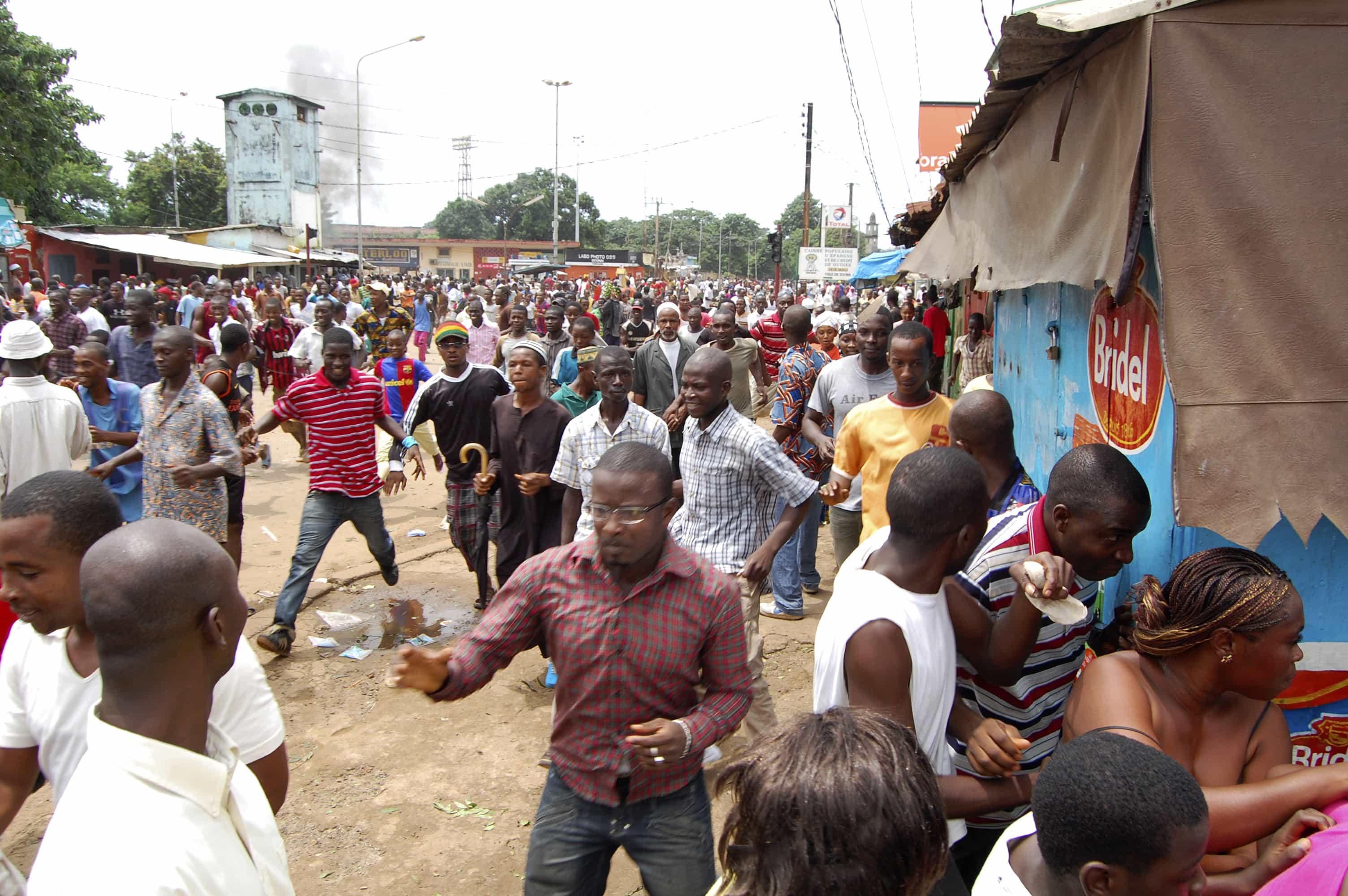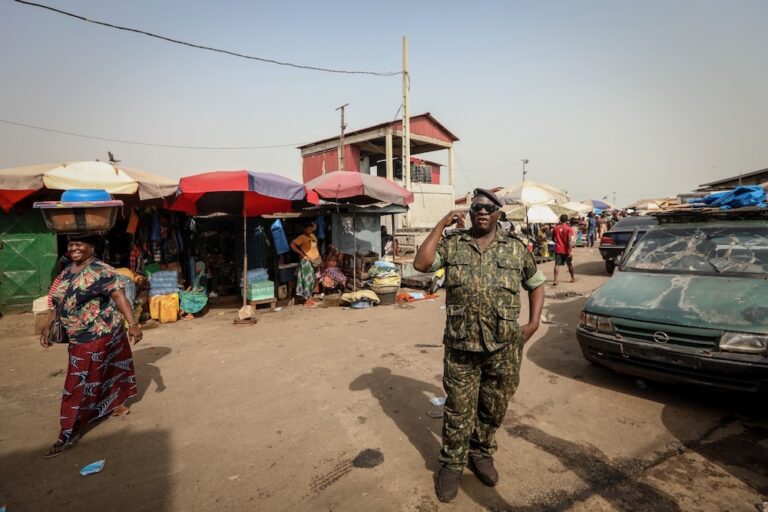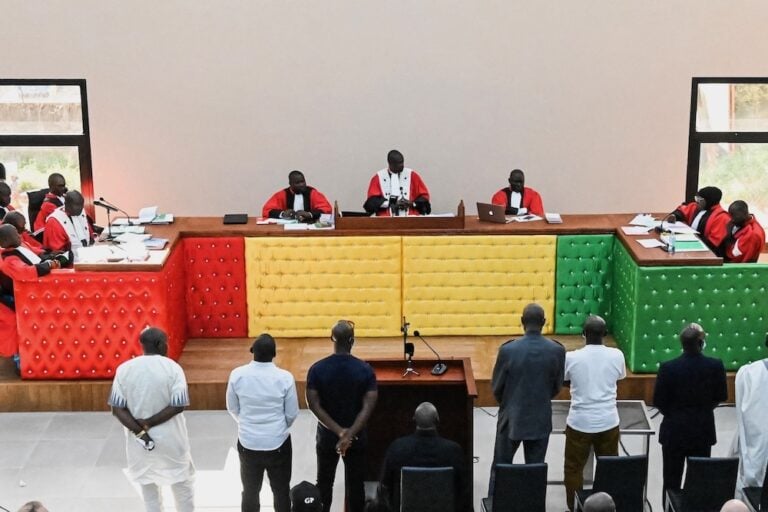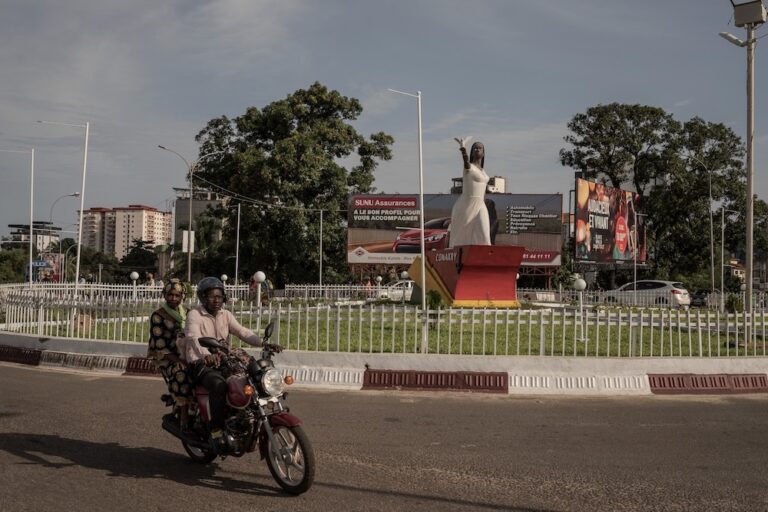Former self-proclaimed President Captain Moussa Dadis Camara has been charged in relation to the 2009 stadium massacre, when security forces opened fire on tens of thousands of opposition supporters peacefully gathered at a stadium in Conakry.
This statement was originally published on hrw.org on 9 July 2015.
Guinea‘s domestic panel of judges investigating the 2009 stadium massacre and rapes took a major step on July 8, 2015, by charging former self-proclaimed President Captain Moussa Dadis Camara, Human Rights Watch said today.
On September 28, 2009, several hundred members of Guinea’s security forces burst into a stadium in Guinea’s capital, Conakry, and opened fire on tens of thousands of opposition supporters peacefully gathered there. At least 150 people died and dozens of women were raped or suffered other sexual violence. A United Nations-supported International Commission of Inquiry, as well as Human Rights Watch and other independent human rights organizations, said that Dadis Camara’s possible role in the killings, rapes, and other abuses should be investigated.
“Guinea’s judges have taken a very significant step toward justice for the 2009 stadium massacre and rapes by charging Dadis Camara,” said Corinne Dufka, West Africa director at Human Rights Watch. “The victims of these heinous crimes have sought justice for more than five years, and today they are one step closer to knowing the truth of what happened that day. Completion of the investigation would open the door to long-awaited prosecutions.”
Dadis Camara became Guinea’s self-proclaimed president in a bloodless coup after President Lansana Conté died in December 2008. At the time of the massacre, Dadis Camara was also commander-in-chief of the Guinean armed forces.
Dadis Camara has been living in exile in Burkina Faso since December 2009. He had stepped down from the presidency after he was shot and wounded in Guinea. A 2011 request by the domestic panel of judges to interview him in Burkina Faso as part of their investigation was satisfied this week after much delay. Dadis Camara was questioned on July 8, 2015, news reports said.
“The sensitive nature of charging such a high-ranking former official may bring increased risks,” Dufka said. “The Guinean authorities need to ensure that judges, witnesses, and victims in the case are protected against threats and violence.”
The panel of judges has made significant progress in its investigation, Human Rights Watch said. They interviewed hundreds of victims and charged more than a dozen people, including high-ranking military officers. Others charged include Guinea’s minister in charge of fighting drug trafficking and organized crime, Col. Moussa Tiégboro Camara; Guinea’s minister for presidential security, Lt. Col. Claude “Coplan” Pivi; and Col. Abdoulaye Chérif Diaby, the health minister at the time.
However, well over five years later, the investigation has yet to be completed. Some suspects have been in pretrial detention longer than the two years permitted by Guinean law.
Human Rights Watch in December 2012 identified several key benchmarks the Guinean government should meet to support the panel to complete its investigation. They included ensuring that the judges have adequate resources and security, and resolving the outstanding request to interview Dadis Camara.
Suspects should also be placed on leave from government posts – namely Colonel Camara and Lieutenant Colonel Pivi – where there is a risk they could interfere with the investigation. This is especially important given the prominent role members of the military have played in Guinean society, Human Rights Watch said.
In October 2009, the Office of the Prosecutor of the International Criminal Court (ICC) confirmed that the situation in Guinea was under preliminary examination – a step that may or may not lead to the opening of an investigation. The ICC has closely monitored the situation and played a pivotal role in keeping accountability on the government’s agenda, and fostering progress by regularly visiting Guinea and talking with the local media.
“Fairly prosecuting all those responsible for the 2009 killings and rapes is essential to ensure redress for the victims and to signal that such crimes will not be tolerated in Guinea,” Dufka said.



